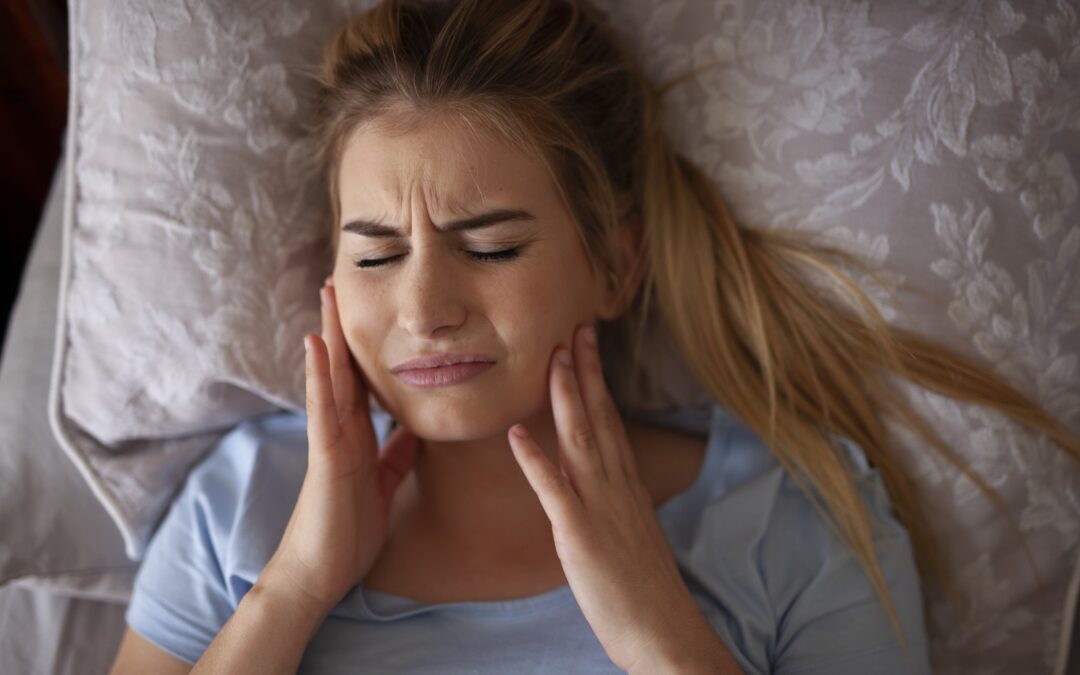If you find yourself clenching or grinding your teeth, especially during sleep, you might be experiencing bruxism. Bruxism can lead to various dental problems, including tooth wear, jaw pain, and headaches. Luckily, there are several effective bruxism treatments available to help you find relief.
Understanding Bruxism
Bruxism, often called teeth grinding or clenching, is a common condition affecting millions worldwide. It involves the involuntary grinding or clenching of teeth, often occurring during sleep but sometimes also during waking hours. Bruxism can lead to significant dental issues, including tooth damage, jaw pain, and headaches. It’s essential to seek bruxism treatments if you suspect you’re experiencing this condition.
Symptoms and Causes of Bruxism
The symptoms of bruxism can vary, but some common ones include:
- Worn or flattened teeth
- Increased tooth sensitivity
- Jaw pain or tightness
- Headaches, especially in the morning
- Earaches
- Disrupted sleep
Several factors can contribute to bruxism, including stress, anxiety, misaligned teeth, and certain medications. Identifying the underlying cause is crucial in determining the most effective bruxism treatments.
Exploring Bruxism Treatments
Various bruxism treatments are available, and the most suitable option will depend on the severity of your condition and its underlying cause. Some common bruxism treatments include:
- Mouthguards: Custom-fitted mouthguards are one of the most common and effective bruxism treatments. They provide a protective barrier between your upper and lower teeth, preventing damage caused by grinding or clenching.
- Stress Management Techniques: If stress or anxiety contributes to your bruxism, stress management techniques, such as meditation, yoga, or exercise, can help reduce its frequency and severity.
- Dental Adjustments: In some cases, misaligned teeth or an improper bite can contribute to bruxism. Dental adjustments, such as orthodontics or bite correction, can help alleviate the problem.
- Medications: In severe cases, muscle relaxants or other medications might be prescribed to help manage bruxism symptoms.
- Lifestyle Changes: Certain lifestyle changes, such as avoiding caffeine and alcohol, can help reduce bruxism episodes.
What to Expect During a Bruxism Treatment Visit
If you suspect you’re experiencing bruxism, it’s crucial to schedule a visit with your dentist. During your appointment, your dentist will:
- Conduct a thorough examination of your teeth and jaw
- Discuss your symptoms and medical history
- Take impressions of your teeth to create a custom-fitted mouthguard, if necessary
- Recommend additional bruxism treatments based on your individual needs
Who Should Avoid Bruxism Treatments?
While treatments are generally safe and effective, some individuals might not be suitable candidates. For example, those with severe temporomandibular joint (TMJ) disorders might require alternative treatment approaches. Additionally, children with primary teeth might not need bruxism treatments as their teeth will eventually be replaced by permanent ones.
Bruxism can significantly impact your oral health and overall well-being. However, with the right bruxism treatments, you can find relief and protect your teeth from further damage. If you suspect you’re experiencing bruxism, don’t hesitate to schedule a consultation with your dentist. They can help you determine the most suitable treatment for your needs and guide you on the path to a healthier smile.


